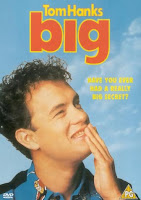We decided we had seen enough Christmas films this month, and wanted something light-weight to see. ‘My Big Fat Greek Wedding II’ seemed to fit the bill. We saw it in April 2017, which is only three and a half years ago, but since we re-watched the original ‘My Big Fat Greek Wedding’ earlier this year, we thought it would be a good idea to see the sequel before we had forgotten all the characters.
The story takes place a decade or so after the end of the original - and the ending was just a cameo about eight years after the main film. The actors, almost all the same ones from the first film, look around the right age, which makes sense as this film came out fourteen years after the original. Toula (Nia Vardalos) remains the start - and she was also the inspiration and writer, growing up, as she did, in a Greek-Canadian family. She’s happily married to Ian (John Corbett) although they seem to have lost some of their early intimacy… and he finds her family a bit overwhelming at times.
The most important new actress is Elena Kampouris, who plays Toula and Ian’s seventeen-year-old daughter Paris. She is perfect in the role as a teenager who loves her extended family, but is very frustrated by their extreme involvement in her life, and their determination to marry her off to a nice Greek boy, so she can make nice Greek babies. She’s the only girl in her generation - all her aunts and uncles have produced boys, who are growing up just like their grandparents.
However the ‘wedding’ of this film isn’t related to Paris, although we’re probably supposed to think that it will be, in an echo of the first film. Part of the storyline involves her increasing bids for autonomy, as she thinks about college applications and a date for her high school prom. In fact the ‘wedding’ part feels almost like an afterthought - it involves a legal anomaly, and while there’s a lot of preparation, and the event itself, it doesn’t feel like the main focus of the film.
The cast all feel realistic, if somewhat caricatured at times; so much so that we’d forgotten that most of them are not Greek. We were reminded when we watched some of the extras including a documentary about the making of the film. They clearly all bonded so well in the first film that they were happy to work together again a decade and a half later.
I love the way that family life is seen as so important in Greek culture, even if exaggerated in its closeness. Marriages are expected to last, families are expected to support each other no matter what. The contrast of cultures is shown in the American desire for independence rather the opposite of the Greek inter-dependence; despite my own Western European background, I found myself feeling more and more drawn to the mutual supportiveness of Toula's extended family, even if she finds them frustrating at times.
There’s plenty of humour as the film cleverly manages to caricature both Greek and American culture and society - not in an unkind way, but as someone seeing both from the inside. Living in a Greek-speaking country as we do, we could appreciate a lot of the side comments and Greek language jokes that might go over the heads of some - but it’s a film that could be enjoyed by anyone.
The rating is 12 in the UK, PG-13 in the US, which surprised me as I would have expected PG in both. There are sexual references, but they’re quite mild; I don’t recall any ‘strong’ language or profanity, and there’s no violence or anything frightening. The most steamy scene involves a married couple in a car, disturbed before anything much happens. Not that it would be of much interest to children or younger teens anyway.
Definitely recommended.

